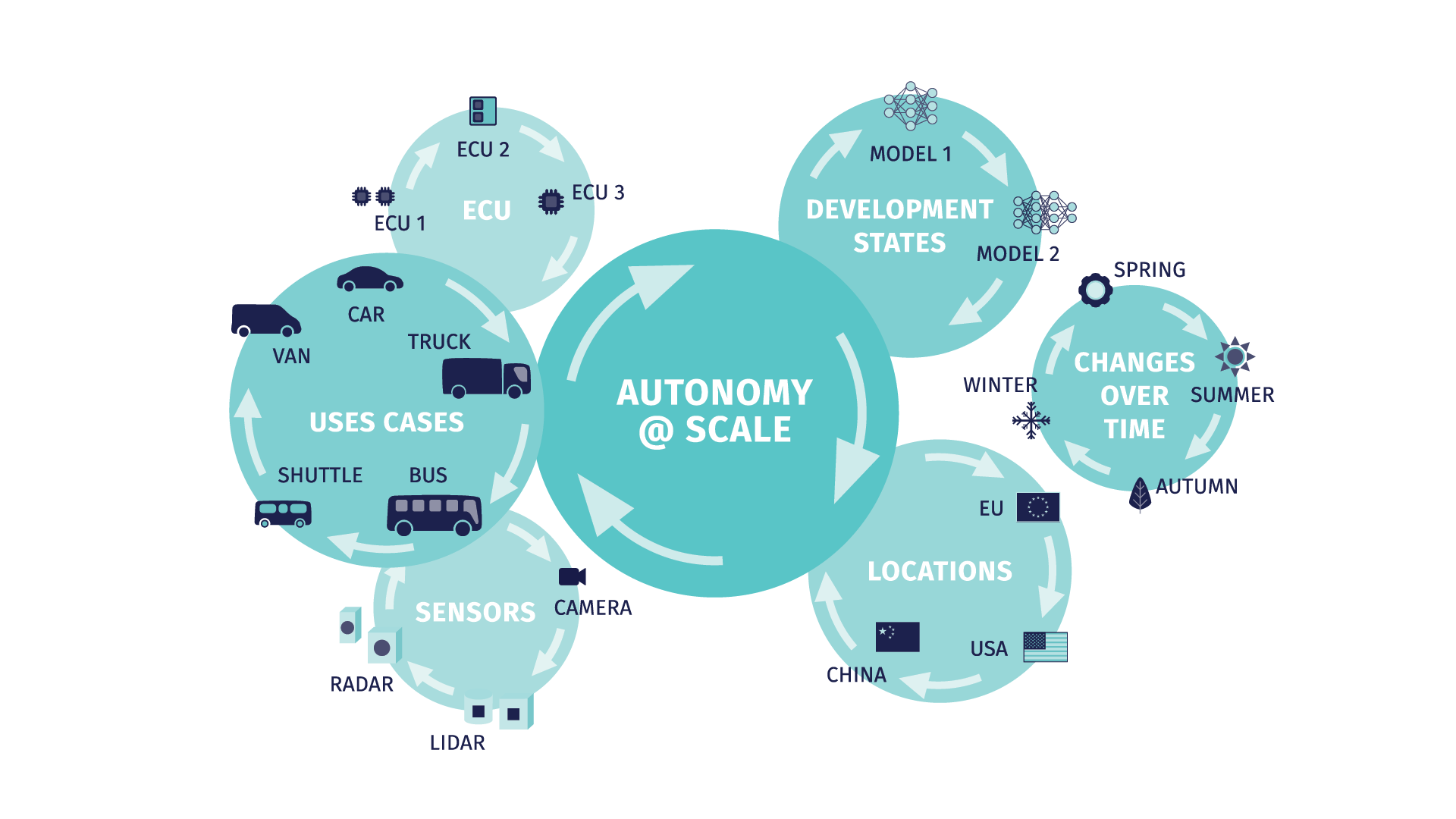Our starting position and challenges
So far, AI modules in autonomous driving applications are scalable to a limited extent only. In fact, they only react reliably in limited scenarios. The reason lies in the training strategies applied, in which algorithms are retrained for each new domain. This results in enormous development costs.
KI Delta Learning researches disruptive methods to train the AI algorithms in a more sustainable way. New, more efficient training methods ensure continuous learning. Knowledge that has already been learned as well as previously tested and secured development levels are retained when changing domains.
This is the only solution to keep up with ever shorter innovation cycles and constantly changing mobility. Current technological gaps that limit the Technology Readiness Level (TRL) of autonomous vehicles and slow down a broad application of AI in autonomous driving will be closed by new approaches in KI Delta Learning.






